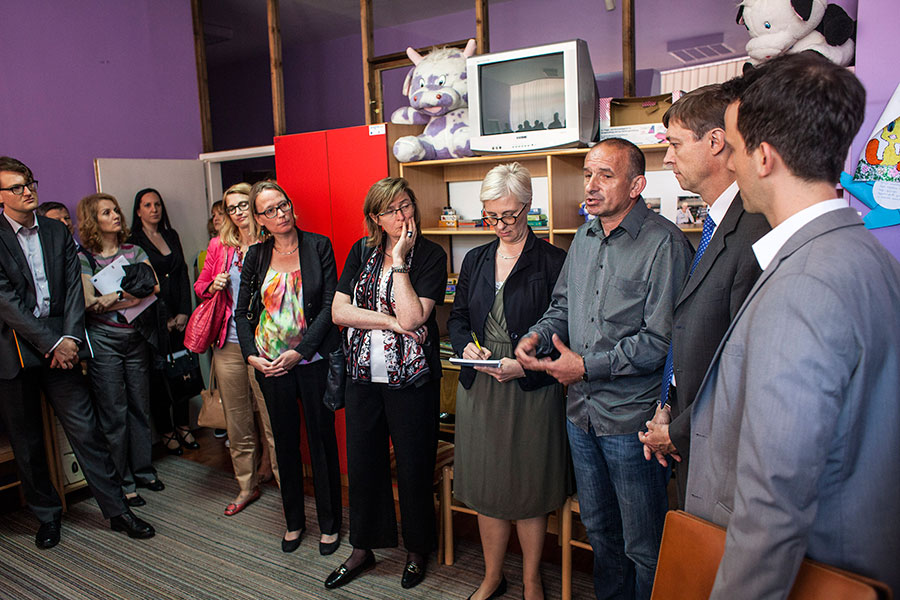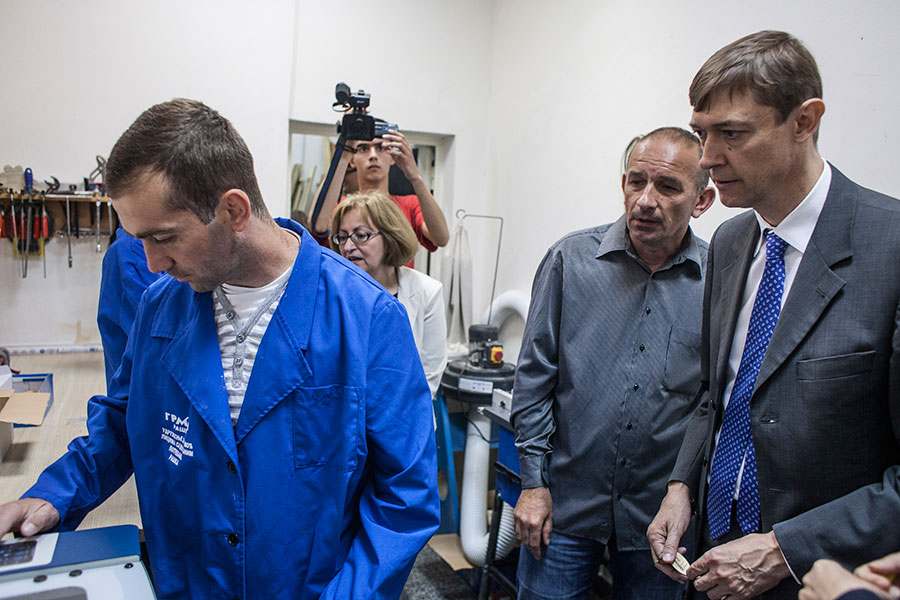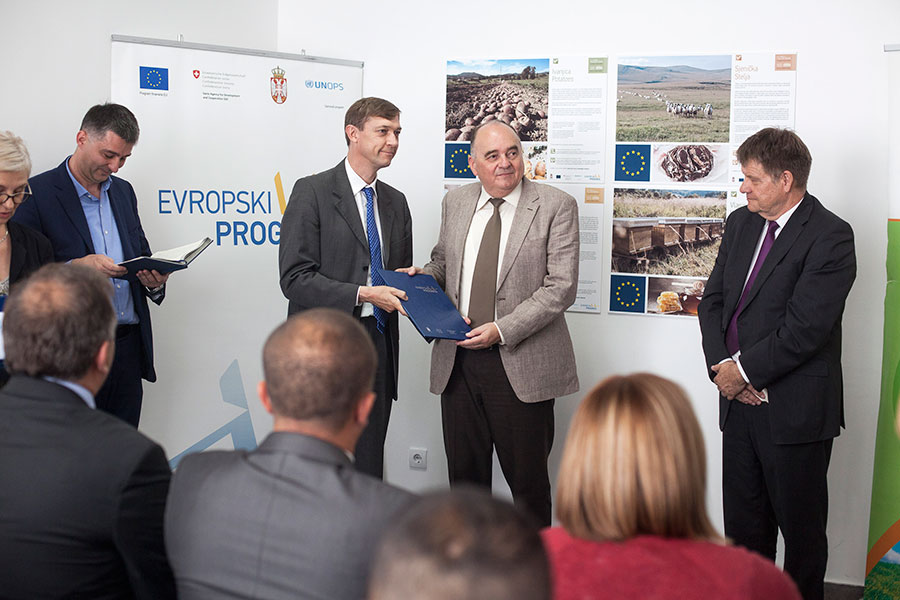The first day of the visit of 17 EU Member States deputy ambassadors saw Oskar Benedikt Deputy Head of the EU Delegation to Serbia handing Sjenica over support agreements on the introduction of protected geographical indication for four produces – Ivanjica potato, Sjenica cow cheese and stelja and Vlasina honey, to be funded by the European Union and Swiss Government through their development programme European PROGRES to the tune of EUR40 000. The programme will provide technical support to conduct necessary studies throughout the process of protecting these traditional produces hailing from South West and South East Serbia.
“Geographic indication of origin allows producers to sell their products at a higher price and make them more competitive because geographical indication represents a guarantee of quality and supports further promotion of the entire region,” said Oskar Benedikt during the ceremony held at Regional Centre for Development of Agriculture in Sjenica.
The European Union and Swiss Government have financially supported construction and equipping of the Centre through the programme which preceded European PROGRES, EU PROGRES, with more than EUR255 000, whereas the contribution from Czech Development Agency amounted to EUR200 000. The Centre, equipped with a modern laboratory, helps farmers from Novi Pazar, Tutin and Sjenica to apply the latest technologies, control their products, increase their production and improve overall agricultural production which has immense importance for the development of the whole region of South West Serbia.
The Delegation of European diplomats also paid a visit to Pester Agro Cluster which brings together dairy farmers from Novi Pazar and Sjenica and is currently implementing another in a series of European PROGRES projects designed to increase competitiveness of local economies. The EU and Swiss Government have allocated some EUR40 000 to help members of this cluster to develop kaymak production and placement capacity in local and regional markets by standardising centuries-old traditional recipes and making them part of modern industrial production.
During the visit to Raska, the Delegation toured the Association for Helping People with Disabilities which, thanks to the donation for the purchase of machines and tools, now has a steady souvenir production and hires more than 50 beneficiaries who have mastered carpentry and secured themselves a source of income.

UNOPS
“We are happy to support such projects which enable persons with disabilities to lead a normal life through workshops,” said Deputy Head of the EU Delegation to Serbia Oskar Benedikt and added that Raska would soon be the scene of another important project – construction of waste water treatment plant which is expected to contribute to the development of tourism and local economy.
Social inclusion is one of the fundamental EU principles and this project is its perfect example: this is social inclusion in line with European standards which entails including socially vulnerable groups in workflow in cooperation with local authorities and civil society organisations.
The Delegation also met with President of Raska Municipality Ignjat Rakitic and President of Sjenica Municipality Hazbo Mujovic. Over the past ten years, these municipalities have been successfully included in implementation of EU-funded development projects – PRO, EU PROGRES and European PROGRES. The EU and Swiss Government have supported over 50 projects with more than EUR1,3 million in Raska, whereas in Sjenica, they have supported more than 30 projects allocating over EUR900 000.

UNOPS
At the end of the first day of the visit, the Delegation of 17 EU representatives met with CSO and media representatives. On the seconds day of the visit, 1 June, the Delegation will be staying in Novi Pazar.
The European Union and the Government of Switzerland will support the activities of the European PROGRESS programme, which contributes to the sustainable development of the South and South West Serbia, with a total of 24.46 million euros. Approved projects will be aimed at strengthening local administration, creating a favourable environment for the development of infrastructure and economy as well as improving the implementation of social inclusion and employment policy. The programme is implemented by the United Nations Office for Project Services (UNOPS) and the Central Finance and Contracts Unit at the Ministry of Finance of the Republic of Serbia (CFCU).
The municipalities included in the programme are as follows: Novi Pazar, Ivanjica, Nova Varos, Priboj, Prijepolje, Raska, Sjenica and Tutin in South West Serbia, as well as Prokuplje, Blace, Zitoradja, Kursumlija, Leskovac, Bojnik, Vlasotince, Lebane, Medvedja, Crna Trava, Vranje, Bosilegrad, Bujanovac, Vladicin Han, Presevo, Surdulica, Trgoviste, Brus, Aleksinac, Gadzin Han, Doljevac, Merosina, Svrljig, Babusnica, Bela Palanka and Knjazevac in South East Serbia.




